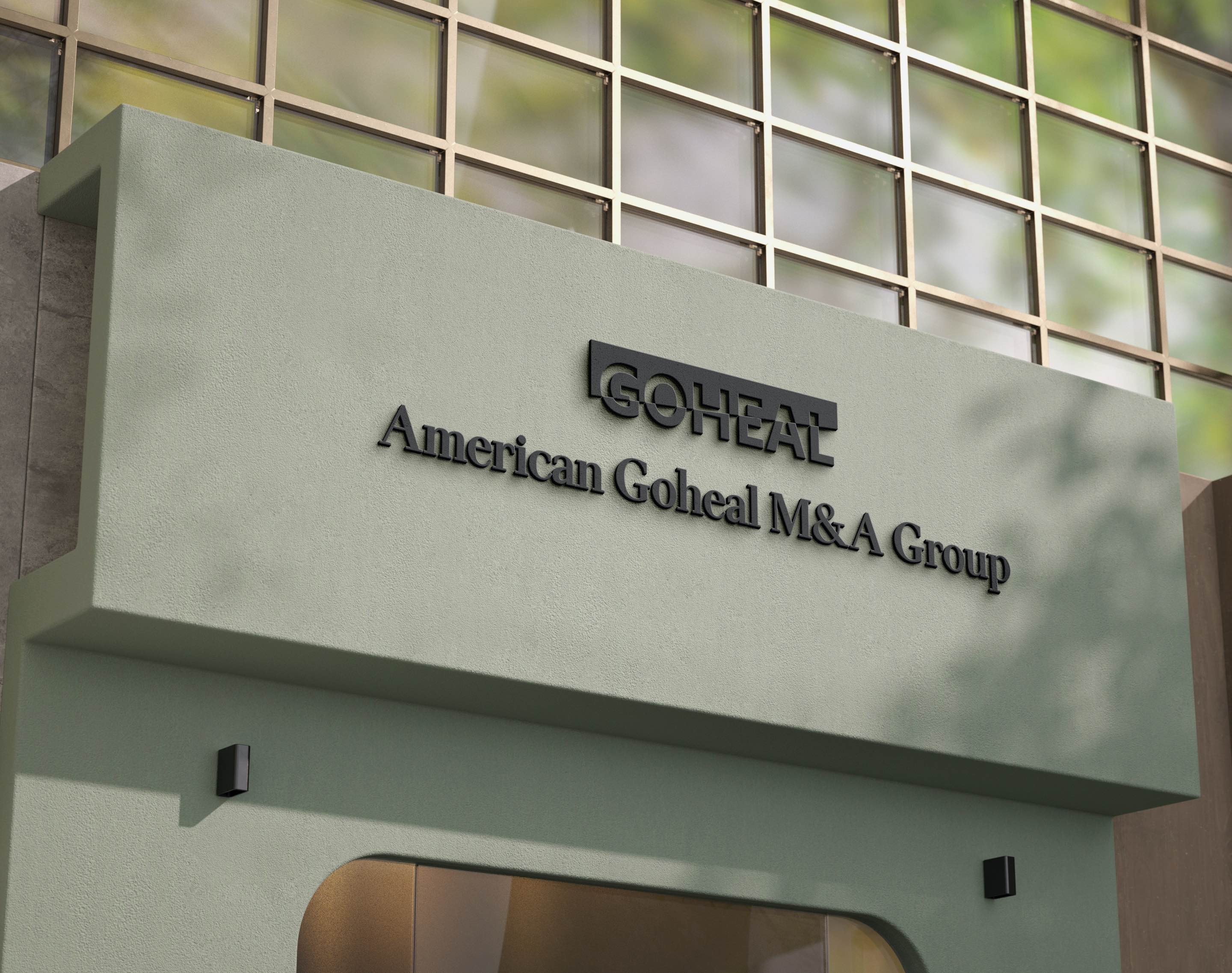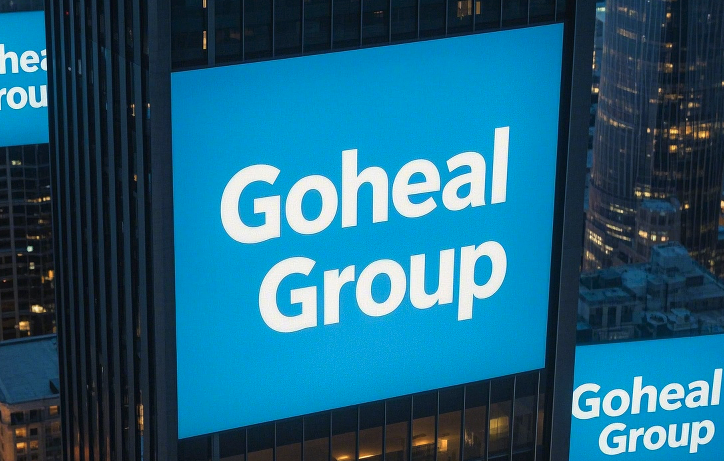"Those who do not plan for the overall situation are not qualified to plan for a specific area." The capital market is changing rapidly. The mergers and acquisitions of listed companies are no longer a simple "asset shuffling" game, but a deep competition involving funds, technology, market, law and other dimensions. Today, the rise of AI is redefining all of this. From precise due diligence to intelligent risk control, from valuation modeling to collaborative integration, artificial intelligence is profoundly affecting the ecological evolution of the M&A market in an unprecedented way.

American Goheal M&A Group
So, with the help of AI technology, what changes have actually taken place in the mergers and acquisitions of listed companies? How can AI help companies reduce risks and improve efficiency in the capital market? Goheal has long been concerned about the application of artificial intelligence in the field of mergers and acquisitions, and has conducted in-depth research on the development trends of the global capital market. Today, I will take you to explore how AI reshapes the new ecology of mergers and acquisitions.
AI Precision Due Diligence: The "Fiery Eyes" of the Capital Market
Due Diligence is the "foundation" of every M&A transaction, but in the past, this process often required a lot of manpower and time, especially cross-border M&A involving different legal and financial systems, and manual due diligence is prone to miss key risks. The application of AI technology has made due diligence no longer a "slow and steady" endurance battle, but an efficient and accurate data comparison.
In recent years, AI-driven intelligent due diligence tools have been widely used in the capital market. Through natural language processing (NLP) technology, AI can quickly read thousands of pages of financial statements and legal contracts and extract key risk points. At the same time, machine learning algorithms can also compare industry data and analyze whether there are anomalies in the target company's financial data, such as whether there is manipulation in revenue recognition and whether assets are overvalued. This allows the acquirer to identify potential financial and legal risks in a shorter time and avoid "stepping on mines."
Goheal found that in some recent M&A transactions, AI has become an important auxiliary tool for institutional investors. For example, when a large private equity fund acquired a medical technology company, it used AI to analyze the company's financial data over the past decade and successfully identified a possible misreported accounts receivable, thereby adjusting the valuation and avoiding potential losses. It can be said that AI is becoming the "eyes and eyes" of the capital market, making due diligence faster, more accurate and more efficient.
Intelligent risk control: Make M&A decisions more "prepared for a rainy day"
One of the biggest risks of M&A is that the market environment changes and the financial situation deteriorates only after the transaction is completed, causing the acquirer to fall into trouble. In the past, companies relied on traditional financial models for risk assessment, but most of these models were based on historical data and could not predict sudden market fluctuations. Today, AI risk control systems can provide a more forward-looking risk warning mechanism through big data modeling and real-time analysis.
Taking market risk as an example, AI can integrate global financial market data, analyze factors such as currency exchange rates, industry development trends, and competitor movements, and give risk scores in real time. This means that companies can predict possible market fluctuations before mergers and acquisitions, thereby formulating more flexible transaction structures, such as using hedging tools and installment payments to reduce financial risks.
Goheal once studied a cross-border M&A case in which a Chinese company planned to acquire a European manufacturing company, but the AI risk control model found during the due diligence process that the company's main supply chain relied on a country that was greatly affected by geopolitics. Once the international situation changes, it may lead to supply chain disruptions. In the end, the acquirer adjusted its acquisition strategy and avoided a potential supply chain crisis. This fully demonstrates that AI is not only a "data analyst" but also a "strategic consultant" that can help companies make M&A decisions more scientifically.
AI-driven integration: Let the synergy effect after M&A really land
It is easy to "buy" a company, but the key is to "manage" a company well. Data shows that after the completion of more than 50% of M&A transactions around the world, the expected synergy cannot be achieved due to problems such as failed cultural integration, chaotic management structure, and unsmooth business integration. And AI is rewriting this situation.
First, AI can analyze the communication patterns of corporate employees through natural language processing technology and predict the difficulties of integration of teams with different cultural backgrounds. For example, AI can track employee emails and meeting minutes, analyze whether there is an "information island" problem, and propose improvement plans. Secondly, in terms of business integration, AI can monitor key indicators such as supply chain data, inventory management, and financial flow in real time to ensure efficient and smooth operation of the company after the merger.
Goheal noticed that after a technology company acquired a competitor, AI analysis found that the two companies had a lot of duplicate investment in product research and development, and by adjusting the allocation of R&D resources, they saved tens of millions of dollars in costs each year. This shows that AI can not only help companies find "who to buy the most suitable", but also help companies "how to manage better" after mergers and acquisitions.
Future Outlook: Will AI make mergers and acquisitions smarter?
AI is fully penetrating the capital market, and every link of mergers and acquisitions transactions is being reshaped. But can AI completely replace human decision-making? The answer is obviously no. AI can improve the efficiency of data analysis and help companies identify potential risks, but the final merger and acquisition decision still requires investors' business judgment, industry experience and a deep understanding of the market.
In the future, the application of AI in the field of mergers and acquisitions will be more in-depth, and may even give rise to the "AI automated transaction matching" model, allowing companies to find the best merger and acquisition targets with the assistance of algorithms and achieve accurate matching. The combination of smart contracts and blockchain technology may also make the merger and acquisition process more transparent and efficient.
Goheal believes that the rise of AI will make the merger and acquisition market more scientific and efficient, but the ultimate winners will still be those entrepreneurs who are good at combining technology and business intelligence. What new changes do you think AI will bring to the merger and acquisition market? Welcome to leave a message to discuss and explore the future of the capital market together!

Goheal Group
[About Goheal] Goheal is a leading investment holding company focusing on global mergers and acquisitions. It has deep roots in the three core business areas of acquisition of controlling rights of listed companies, mergers and acquisitions of listed companies, and capital operations of listed companies. With its profound professional strength and rich experience, it provides companies with full life cycle services from mergers and acquisitions to restructuring and capital operations, aiming to maximize corporate value and achieve long-term benefit growth.